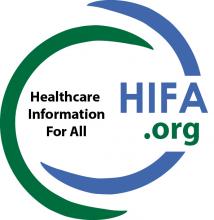
Tsunamis, earthquakes; terrorism; biological, chemical or nuclear warfare; disease outbreaks, global pandemics, antimicrobial resistance... The health impact of national and global emergencies depends largely on the degree to which individuals, communities, nations and supranational bodies are adequately informed. To what extent are current Library and Information Services (LIS) meeting the information needs of different user groups in different contexts? Where are the gaps and what are the priorities for future action?
We invite everyone with an interest in global health, disasters, disease outbreaks and humanitarian response to join us to explore these and other questions in a major thematic discussion on HIFA, starting 17 July and continuing to 18 August 2017.
The discussion will address the following themes and questions (these questions are in draft and are subject to change):
1. In week 1 we shall discuss the scope and remit of the HIFA LIS Project and how you can be involved. We'll also discuss the findings of the PHE/HIFA Evidence Briefing and invite you to suggest additional papers and publications we may have missed.
2. In week 2 we'll continue this theme by asking: What do we know about the availability and use of reliable information for global health emergencies, disasters and disease outbreaks? What works and what doesn't?
3. In week 3 we ask: Do you (or your organisation) have any real-life experience in dealing with an emergency/disaster/outbreak? Were you able to access/provide the information needed? What were the challenges and lessons learned?
4. TBC
5. TBC.
We are grateful to Caroline De Brún of Public Health England, who has carried out a preliminary PHE/HIFA Evidence Briefing around the question: What is the evidence around knowledge and library service provision and knowledge management to support global health, and disaster and emergency preparedness?
Our thanks to Public Health England, Evidence Aid and HIFA LIS Project members for their financial and technical support for this new HIFA Library and Information Services project. You can find out more about the project here.

